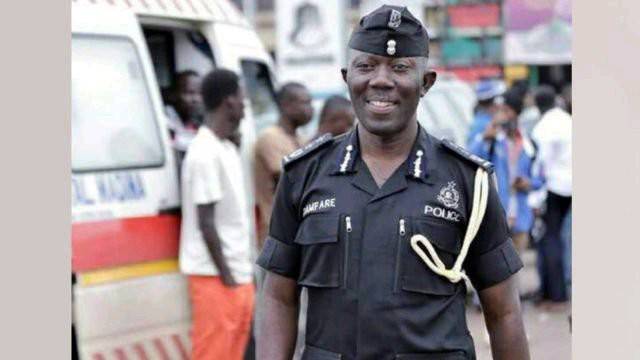There is growing concern and discontent within the Ghana Police Service following reports of secret promotions that appear to be based on favoritism and political connections rather than merit. This has caused frustration among many officers, who feel overlooked and undervalued despite meeting all the necessary qualifications for advancement.
Traditionally, promotions within the police service were announced publicly, and a full list was made available for everyone to see. This allowed for transparency and fairness, ensuring that every officer understood who was promoted and why. However, recent reports suggest that this system has been abandoned. Promotions are now being conducted in secret, with only the beneficiaries and a few select individuals informed.
In some cases, officers have reportedly been notified of their new ranks via private platforms like WhatsApp. This lack of transparency has created confusion within the service, with many officers only learning of their colleagues’ promotions when they notice them wearing new ranks on their uniforms. For officers who work in departments like the Criminal Investigations Department (CID) or the Police Intelligence Directorate (PID), where plain clothes are often worn, promotions are even more secretive. In these cases, only the officer, their superiors, and the person behind the promotion are aware.
One example being discussed widely is the promotion of a certain officer, Asare, from the Legal and Prosecution Directorate. Asare, who is said to have close ties to the Inspector General of Police (IGP), Dr. George Akuffo-Dampare, was recently promoted to Chief Superintendent of Police. Meanwhile, other officers in the same department, some of whom are qualified lawyers, remain stuck at the lower ranks of sergeant or corporal.
This disparity in promotions has caused anger and frustration among many officers who believe the process is no longer fair. Further reports suggest that some Assistant Commissioners of Police (ACP) have been waiting for promotions for over seven years, even though the standard interval for promotion is four years. In contrast, others with only three years at the ACP rank have been promoted to Deputy Commissioners of Police (DCP), bypassing their seniors.
Adding to the frustration is the fact that many of these newly promoted DCPs have been given important positions as heads of newly created regional commands, such as Kibi, Mampong, Assin Fosu, Hohoe, Kasoa, and Mpraeso. These promotions are seen by critics as being politically influenced, with some alleging that most of the beneficiaries are supporters of the ruling New Patriotic Party (NPP).
Social media has been flooded with congratulatory messages for those who have benefited from the promotions, but the controversy surrounding the process has overshadowed the celebrations. Many officers and observers argue that the promotions lack fairness and have been shaped by favoritism and politics rather than by merit and performance.
The problem is not limited to promotions alone. Reports also suggest that political influence extends to police operations, particularly during elections. During recent elections, some officers were reportedly deployed based on their perceived political affiliations. Officers who were thought to be unsupportive of the ruling party were allegedly sidelined and excluded from election-related duties. This has raised serious concerns about the impartiality and professionalism of the Ghana Police Service.
The alleged politicization of the police service is damaging to the morale of its officers and to public trust in the institution. Officers who work hard and play by the rules feel overlooked and demoralized, while the public begins to lose confidence in the service’s ability to act fairly and without bias.
For a nation like Ghana, which relies on its police service to maintain law and order, this is a dangerous development. If officers feel unappreciated and demotivated, it could lead to a decline in overall performance and efficiency. Moreover, when the public perceives the police as being influenced by politics, it weakens their trust in the system and raises concerns about whether justice can be served fairly.
To address these challenges, the leadership of the Ghana Police Service must take immediate action to restore fairness and transparency. Promotions should be based strictly on qualifications, performance, and years of service, with no room for favoritism or political interference. Clear guidelines and criteria for promotion should be established and followed, and the entire process should be made public to ensure accountability.
Additionally, it is important to remove political influence from all aspects of police operations. The police service must remain neutral and professional in the execution of its duties, especially during sensitive periods like elections. Officers should be deployed based on their skills and experience, not their perceived political affiliations.
The Ghana Police Service has long been regarded as one of the pillars of the nation’s stability. To maintain this reputation, it is essential to prioritize the principles of fairness, transparency, and impartiality. Only then can the service regain the trust of its officers and the public, ensuring that it continues to play its vital role in safeguarding the country.
The time for change is now. By addressing these issues head-on, the leadership of the Ghana Police Service can rebuild morale, restore trust, and set the institution back on the path of professionalism and excellence.



No comments yet
Be the first to share your thoughts!